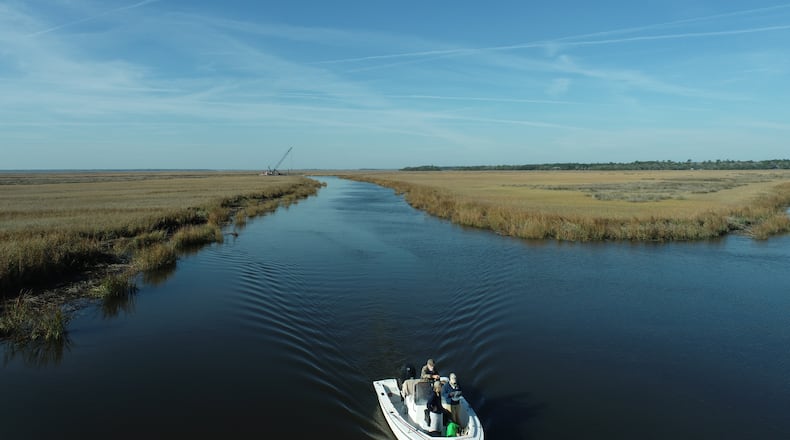A bill that seeks to streamline private claims on Georgia coastal marshland cleared its first hurdle Tuesday when it squeaked out of the House Judiciary Committee by a vote of 6-5.
Georgia boasts one of the least-developed coastlines in the country with about 368,000 acres of protected salt marsh that provides a buffer against flooding and erosion as well as habitat for countless species of plants and animals.
Backers of the bill say it’s needed to encourage private property owners to restore wetlands and put property into conservation easement, which they can’t do without a clear title to the land. In Georgia, all salt marsh belongs to the state unless a property owner can trace their title to a grant from the state or the King of England.
Environmental groups that oppose the bill say it makes it too easy for private property owners to claim public wetlands with no requirement that the land be placed in easement or restored. Some have also said the measure could fuel the destruction of wetlands by creating new mitigation credits that could be sold to developers seeking to offset environmentally sensitive projects elsewhere.
Rep. Matt Reeves, R-Duluth, who supports the bill, told the House committee that critics who claim the bill is about money in the form of tax breaks or mitigation credits are missing the point.
“It is about money,” Reeves said. “If you look at that marshland from the air in Georgia, it’s still disturbed, you still have that manmade grid system that’s been there for centuries — to get that back to the way Mother Nature made it before it got colonized and disturbed, that’s going to take money.”
But April Lipscomb, an attorney with the Southern Environmental Law Center, said the current system of proving title is rigorous for a reason. She said that some of the landowners who had complained of long delays had tried to go directly to the Attorney General’s office instead of going through the courts like they were supposed to.
“The system really isn’t broken, they’re just trying to create a brand-new system that’s more beneficial to private property owners,” Lipscomb said. “My fear is we’re going to see a lot more destruction of marsh because of this bill’s passage.”
The bill still needs to have a full vote in the House before Crossover Day on Feb. 29, to have a chance of becoming law. The state Senate would then have to approve it before the Legislative session ends on March 28.
A note of disclosure
This coverage is supported by a partnership with Green South Foundation and Journalism Funding Partners. You can learn more and support our climate reporting by donating at ajc.com/donate/climate/
About the Author
Keep Reading
The Latest
Featured



